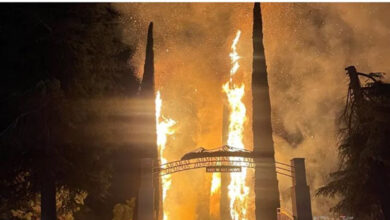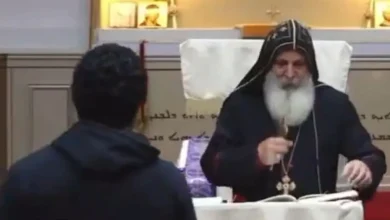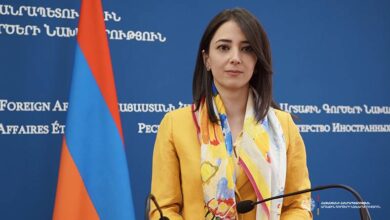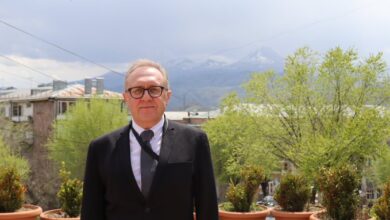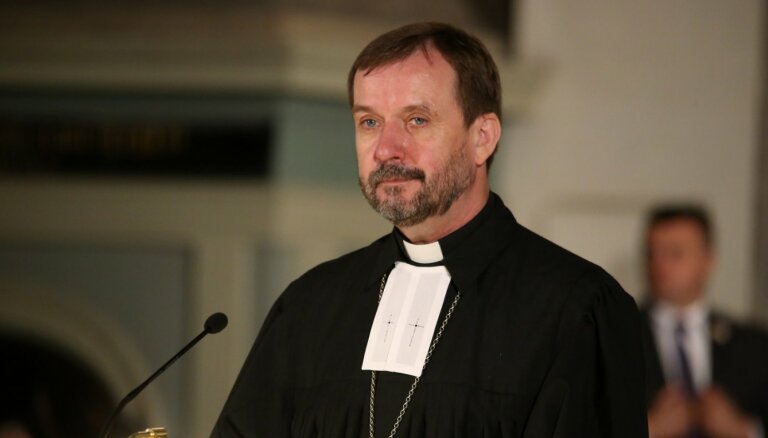
Jānis Vanags, the Archbishop of Latvian Evangelical Lutheran Church (Spiritual leader of Latvia) has issued a statement on the occasion of the 105th anniversary of the Armenian Genocide, the Armenian Embassy in Lithuania, Latvia and Estonia informs. The statement reads:
Yesterday, on Misericordias Domini Sunday, we prayed in our church for the tragedy of Armenian people that in many countries is recognized as genocide. On April 24th we remembered the 105th anniversary of this tragedy. Because of the restrictions imposed by the global pandemic, Yerevan did not see the traditional procession of remembrance. Instead, people turned off the electricity in their homes and put candles or mobile phone torches on their windowsills or balconies.
The Latvian people have themselves seen massacres and deportations of peaceful civilians, yet, we do not know much about the years of terror experienced by Armenians. Even I myself had to check some details in the Encyclopaedia Britannica.
Since times immemorial the Anatolian plateau was populated mainly by Armenian Christians who lived there side by side with Kurdish Muslims. In the 15.-16th century, this territory came under the control of the Ottoman Empire. The life of Christians of Armenian descent became increasingly difficult. Often they were unprotected by law against their Muslim neighbors. With World War I approaching at the beginning of the 20th century they were often suspected in treacherous contacts with Armenians who lived on the other side of the border.
At the beginning of 1915, the Ottoman army was crushed in the battle of Sarikamish. The main reason for this defeat was unfavorable weather and poor leadership, yet the blame was put on the “treachery of Armenians.” That was the prelude of the Genocide. The Ottoman authorities began deportations of Armenians from the Eastern Anatolia with the pretext that their presence endangers the security of the state. The ottoman Parliament passed laws that officially approved deportations. The first sign of the approaching catastrophe was the deportation of 250 Armenian intellectuals from Constantinople (Istanbul) on April 24, 1915.
The following summer and autumn Armenian civilians were taken from their homes and marched through the mountains and valleys of Eastern Anatolia to concentration camps in the desert. The deportations monitored by civilian and military officials were accompanied by systematic mass murder campaigns by irregulars as well as the local Kurds and Circassians. The survivors [of the death marches] who reached the Syrian desert perished in concentration camps. The mass murders continued also in 1916.
According to conservative estimates, that 600 000 to more than one million Armenians died or were murdered during deportations. Other sources maintain that the number of victims reached even 1,5 million. Reports came from foreign journalists, diplomats, and the military. The deserted Armenian homes in the Eastern Anatolia were given to Muslim refugees. Armenian women and children who managed to survive were often forced to give up their Armenian identity and convert to Islam. Tens of thousands of Armenian orphans were sheltered by foreign missionaries.
In 2014, the Turkish government expressed condolences to Armenian victims yet today’s Turkey denies that the repressions against Armenians should be called genocide.
Turkey maintains that it had been an instantaneous reaction to the crisis of World War I, not the realization of a long-lasting plan of the extermination of Armenian people. There had been mass murders but they had not been initiated and organized by the government. In any event, the consequences were just like those of an intentional ethnic cleansing. When the war was over more than 90 percent of Armenians of the Ottoman Empire had perished and the evidence of their existence had been erased. That is why the Republic of Armenia insists that the extermination of Armenian people should be called genocide.
Even these days there are intentional persecutions and murders of Christians. Every year many churches perish in flames and thousands of Christians are murdered, yet the governments of Western countries keep a politically correct silence about it. That is why the remembrance of the Armenian Holocaust is so important ‒ because the consequences of indifference and silence are deadly.



